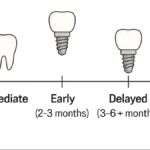In an age where information is constantly evolving and new skills are required rapidly, the ability to learn faster has become crucial. Whether you’re a student, a professional, or someone passionate about personal development, enhancing your learning speed can significantly impact your success and efficiency. But how exactly can one learn faster? This comprehensive guide will explore various strategies, techniques, and tools to help you maximize your learning potential.
Understanding the Science of Learning
Before diving into techniques to learn faster, it’s important to understand how learning works. Learning is a complex cognitive process that involves acquiring knowledge or skills through experience, study, or teaching. It typically encompasses several stages:
- Encoding: The process of transforming information into a format that can be stored in the brain.
- Storage: Maintaining the encoded information over time.
- Retrieval: Accessing and using the stored information when needed.
Research in cognitive science has identified several factors that affect these stages, including attention, motivation, and cognitive load. By optimizing these factors, you can enhance your ability to learn quickly and effectively.
Effective Techniques to Learn Faster
Active Learning
Active learning involves engaging with the material in a way that promotes deeper understanding. Rather than passively reading or listening, try these strategies:
- Summarization: Write summaries of what you’ve learned in your own words.
- Teaching Others: Explain concepts to someone else. Teaching forces you to clarify your understanding and identify gaps in your knowledge.
- Application: Apply what you’ve learned in practical scenarios or problems. This helps in solidifying the information and understanding its real-world relevance.
Spaced Repetition
Spaced repetition is a technique where information is reviewed at increasing intervals. This method leverages the spacing effect, which is the tendency to remember information better if it is studied in multiple sessions spread out over time.
- Tools: Use spaced repetition software like Anki or Quizlet, which automates the process of reviewing information at optimal intervals.
- Practice: Incorporate spaced repetition into your study routine to reinforce and retain information more effectively.
Chunking
Chunking is a method of breaking down large amounts of information into smaller, manageable units, or “chunks.” This technique helps in overcoming the cognitive load and makes it easier to process and recall information.
- Examples: Instead of trying to memorize a long string of numbers, group them into chunks (e.g., 123-456-7890).
- Application: Apply chunking to various types of information, such as vocabulary lists, historical dates, or complex concepts.
Multisensory Learning
Engaging multiple senses can enhance learning and memory. Multisensory learning involves using sight, sound, touch, and even taste and smell to reinforce information.
- Visual Aids: Use diagrams, charts, and videos to complement textual information.
- Auditory Aids: Listen to audio recordings or podcasts related to the material.
- Kinesthetic Activities: Engage in hands-on activities or simulations to experience concepts in action.
Goal Setting and Time Management
Setting clear, achievable goals and managing your time effectively can streamline your learning process and keep you motivated.
- SMART Goals: Define Specific, Measurable, Achievable, Relevant, and Time-bound goals to structure your learning objectives.
- Time Blocking: Allocate specific blocks of time for focused study sessions and breaks to avoid burnout and maintain productivity.
Leveraging Technology to Enhance Learning
Learning Platforms and Apps
Numerous digital tools and platforms are available to support faster learning:
- Online Courses: Platforms like Coursera, Udemy, and Khan Academy offer a wide range of courses that cater to various learning needs.
- Educational Apps: Apps such as Duolingo for language learning or Khan Academy for math and science provide interactive and engaging ways to acquire new skills.
Digital Flashcards
Digital flashcards, powered by spaced repetition algorithms, can significantly improve your memorization and recall capabilities. Platforms like Anki and Quizlet allow you to create custom flashcards and access pre-made decks on a variety of subjects.
Virtual Reality (VR) and Augmented Reality (AR)
VR and AR technologies can provide immersive learning experiences that enhance understanding and retention. For example, VR can simulate real-world scenarios for practice, while AR can overlay digital information onto the physical world for interactive learning.
Cognitive and Psychological Strategies
Mindfulness and Focus
Improving your focus and attention can lead to faster learning. Techniques such as mindfulness meditation can help reduce stress and increase concentration.
- Meditation: Practice mindfulness meditation to enhance your ability to stay present and engaged during learning activities.
- Minimizing Distractions: Create a study environment free from distractions and interruptions to maintain focus.
Growth Mindset
Adopting a growth mindset involves believing that your abilities and intelligence can be developed through effort and learning. This mindset encourages perseverance and a positive attitude toward challenges and failures.
- Self-Talk: Replace negative self-talk with affirmations that reinforce your belief in your ability to learn and improve.
- Embrace Challenges: View challenges as opportunities for growth rather than obstacles.
Healthy Lifestyle Choices
Maintaining a healthy lifestyle can support cognitive function and learning efficiency. Key factors include:
- Nutrition: Eat a balanced diet rich in fruits, vegetables, and whole grains to support brain health.
- Sleep: Ensure you get adequate, quality sleep to consolidate memories and enhance cognitive function.
- Exercise: Regular physical activity can improve focus, memory, and overall mental performance.
Practical Tips for Faster Learning
- Create a Study Plan: Outline your learning goals and create a structured plan to achieve them.
- Use Mnemonics: Employ memory aids such as acronyms or rhymes to facilitate recall.
- Practice Regularly: Consistent practice and review are key to reinforcing learning and retaining information.
- Stay Curious: Cultivate a curiosity-driven approach to learning by exploring topics of interest and asking questions.
Conclusion
Learning faster is a multifaceted process that involves understanding how learning works, employing effective techniques, leveraging technology, and adopting cognitive and lifestyle strategies. By integrating active learning methods, spaced repetition, multisensory engagement, and time management, you can enhance your ability to acquire and retain information more efficiently.
Embracing a growth mindset and maintaining a healthy lifestyle further support your learning journey. With the right tools and approaches, you can unlock your full learning potential and achieve your educational and personal development goals more rapidly.
FAQs
What are the best techniques for learning faster?
The best techniques include active learning (such as summarizing and teaching others), spaced repetition, chunking, multisensory learning, and effective goal setting. Utilizing these methods can enhance your ability to absorb and retain information more efficiently.
How can technology help in learning faster?
Technology can aid learning through various tools such as online courses, educational apps, digital flashcards, and immersive VR/AR experiences. These resources provide interactive and engaging ways to learn and reinforce knowledge.
Why is a growth mindset important for learning faster?
A growth mindset fosters a belief that abilities can be developed through effort and learning. This attitude encourages persistence, resilience, and a positive approach to challenges, which are crucial for accelerating learning.
How does sleep affect learning?
Adequate, quality sleep is essential for memory consolidation and cognitive function. Poor sleep can impair concentration, retention, and overall learning efficiency. Prioritizing good sleep hygiene can support faster and more effective learning.
Can exercise impact learning speed?
Yes, regular physical exercise has been shown to improve focus, memory, and cognitive performance. Incorporating exercise into your routine can enhance your overall mental capabilities and support faster learning.







